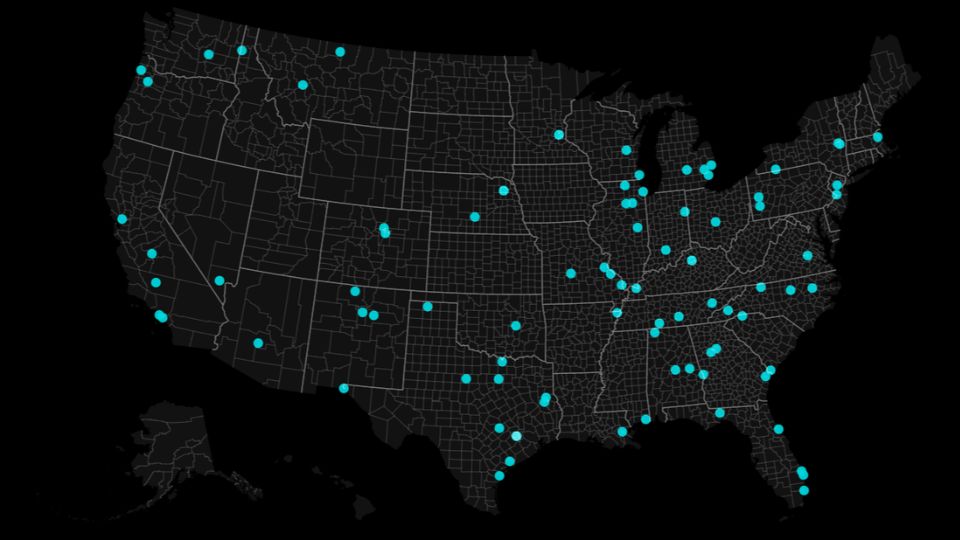Malware attacks, where an intruder attempts to install harmful software on the victim’s computer without their knowledge, are a significant issue globally. Beyond Identity used data from the SonicWall Cyber Threat Report to list the top 5 US states most vulnerable to malware attacks.
The report gathered data on the frequency of malware detection by researchers and sensors in over 200 countries globally. Although certain areas may experience frequent malware detections, the extent of spread is a more accurate indicator of the risk of an attack. States are ranked according to the spread of malware, and any ties between states are due to rounding.
SonicWall data shows a 4% decrease in malware incidents from the previous year, totaling 5.4 billion hits globally. In 2021, the company found 2.9 billion malware hits on their US sensors. Florida had the highest number of malware hits in 2021, totaling 625 million. The state was not included in the most recent list, suggesting that these attacks can be effectively prevented by technologies such as antivirus software and firewalls.
President Joe Biden signed an executive order on the federal level to safeguard federal networks and infrastructure from cybercrime. In November 2021, he signed the Jobs Act into law, allocating $2 billion for cybersecurity. Continue reading to find out which states are most vulnerable to malware attacks due to their spread.
States Most at Risk for Malware Attacks
Kansas
For the second consecutive year, Kansas is at the top of the list, but with a reduced margin compared to last year. In July 2021, the state’s governor, Laura Kelly, established a task force to address a series of cyberattacks. According to a survey of schools across the state, administrators found that a significant number of school computers were lacking antivirus software. Out of the 144 school districts surveyed, 69 revealed that they lack a plan to address cyberattacks. Ransomware attacks are increasing and are particularly effective at targeting vulnerable infrastructures such as these Kansas schools.
South Dakota
Agriculture is the leading industry in South Dakota. The FBI released a report on the potential threat of cyber attacks targeting the state’s agricultural industry, which has already been impacted by pandemic-related inflation and supply chain disruptions. The warning emphasized the threat of ransomware attacks on farmers’ co-ops during harvest season.
To address the increasing demand for cybersecurity professionals locally and nationwide, Dakota State University unveiled a $90 million initiative earlier this year. The university intends to recruit hundreds of individuals in Sioux Falls and Madison, South Dakota. In the spring, Gov. Kristi Noem approved a bill allocating $30 million in state taxpayer funds for the public-private partnership applied research lab.
Also Read: Listing Best Ways To Stop Neighbors From Car Parked In Front Of Your House
Iowa
In 2021, a major farming cooperative in Iowa experienced a ransomware attack. The cyber group responsible for the Iowa attack is known as BlackMatter and has stated that they do not aim to target critical infrastructure. Detractors of the ransomware attack highlighted that a group in charge of providing food for livestock likely plays a crucial role in the US infrastructure.
Hawaii
In 2021, Hawaii was affected by a widespread software vulnerability that also exposed many others to potential attacks. Log4j is a Java-based software utility that offers flexibility across various platforms such as Windows and Mac. It serves as a logging program that is crucial for systems as it monitors user sign-ins and locations. Log4j was vulnerable to a significant security issue that made it susceptible to hackers. Due to its frequent use in online and cloud systems, the vulnerability was easily exploited.
Indiana
In 2021, Indianapolis’ Eskenazi Health hospital system experienced a ransomware attack. Ransomware encrypts computer systems until a payment is made, typically in cryptocurrency. This has a significant effect on health care systems, as their networks are extensive and they must adhere to regulations and privacy laws to safeguard patient data. Officials confirmed that no patient data was compromised. However, various components of the Eskenazi system were shut down proactively to prevent potential attacks. The attacks caused the hospital to refuse ambulances and create other obstacles to providing critical patient care.



Leave a Reply